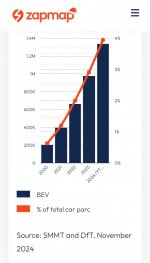nabsim
Full Member
- Messages
- 4,183
Cheeky Git!Yes I know. No need to nag. The point I was making, or trying to, is…….
Rob and I have the same Adventurer fridge. The difference being, he has fitted his. And it’s working well for him, I understand.
Mine is naked of boxes, they have been dropped off at the Tidy Tip. So I’m obviously keeping it, no more prevarication thenAnd is sitting on my bench waiting to be fitted into the van. As the lpg fridge works perfectly well in the winter, it will go into the van when it warms up a bit. May time, sounds good.
I do hope this explains the situation for you Neil, I have tried to keep it simple for you.
Mainly because I don’t understand difficult.
Enjoy your day, before someone spoils it.

